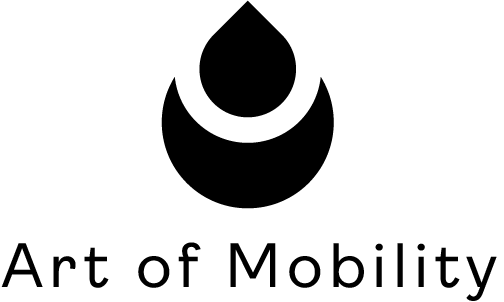
Athletes face unique physical challenges, from intense training sessions to the risk of injuries during competition. To maintain peak performance and recover effectively, physiotherapy has become an essential part of athletic care. By addressing injuries, enhancing strength and flexibility, and preventing future setbacks, physiotherapy provides athletes with the tools they need to excel in their sport. In this guide, we explore how physiotherapy supports athletes at every stage of their journey, from injury recovery to optimizing performance and beyond.
Benefits of Physiotherapy for Athletes
Physiotherapy offers a multitude of benefits that go beyond injury recovery. For athletes, it’s a crucial element in maintaining physical health, enhancing performance, and achieving long-term success.
- Injury Rehabilitation: Physiotherapy accelerates recovery by targeting the root cause of the injury. It uses techniques like manual therapy, exercises, and modalities such as ultrasound or electrical stimulation to restore function and reduce pain.
- Performance Enhancement: By improving flexibility, strength, and balance, physiotherapy helps athletes move more efficiently, reducing unnecessary energy expenditure and enhancing overall performance.
- Pain Management: Athletes often deal with chronic or acute pain. Physiotherapy provides drug-free pain management solutions tailored to the specific needs of each individual.
- Improved Range of Motion: Targeted exercises and stretching techniques help athletes regain and improve their range of motion, ensuring they can perform at their best.
- Addressing Imbalances: Physiotherapy identifies and corrects muscular imbalances, reducing the strain on overworked areas and optimizing biomechanical function.
These benefits not only help athletes recover faster but also ensure they can train and compete more effectively.
Common Injuries Athletes Seek Physiotherapy For
Athletes of all levels are prone to injuries due to the repetitive and high-impact nature of their activities. Some of the most common injuries treated by physiotherapists include:
- Sprains and Strains: These are among the most frequent injuries, particularly in the ankles, wrists, or hamstrings, caused by overstretching or tearing of ligaments and muscles.
- Tendonitis: Overuse injuries like tennis elbow or Achilles tendonitis occur when tendons become inflamed from repetitive motion. Physiotherapy helps reduce inflammation and strengthen the affected area.
- Rotator Cuff Injuries: Common among athletes in sports like swimming, baseball, or tennis, rotator cuff injuries affect the shoulder muscles and can lead to reduced mobility and pain.
- Shin Splints: Runners and jumpers often experience pain in the front of the lower legs due to overuse. Physiotherapy focuses on alleviating pain and preventing recurrence through improved mechanics.
- Knee Injuries: Conditions like patellofemoral pain syndrome or ACL tears are common in athletes who engage in running, jumping, or pivoting.
- Stress Fractures: Caused by repetitive impact on bones, stress fractures are often seen in runners and require rest, strengthening, and gait adjustments.
- Back Pain: Athletes involved in sports requiring repetitive twisting or heavy lifting, such as golf or weightlifting, often seek physiotherapy for back pain management.
By addressing these injuries early, physiotherapy helps athletes get back to their sport faster and reduces the likelihood of long-term complications.
Can Physiotherapy Help Athletes Avoid Injuries?
Yes, physiotherapy serves as a proactive approach to injury prevention, making it an essential part of many athletes’ training routines. By focusing on muscle imbalances, physiotherapists work to identify and strengthen weaker muscle groups. This creates balanced support across the body, reducing the risk of injury. Additionally, physiotherapy incorporates stretching techniques and exercises to enhance flexibility and joint mobility, addressing stiffness that often leads to injuries.
Athletes also benefit from a detailed analysis of their movement mechanics. Physiotherapists examine these patterns, identifying inefficiencies that could contribute to overuse injuries. Corrective exercises are then implemented to alleviate unnecessary strain. Furthermore, strengthening programs are tailored to focus on areas such as the core and stabilizing muscles. This added strength reduces stress on joints and ligaments, providing greater protection during high-impact activities.
Another crucial aspect of physiotherapy is education. Physiotherapists guide athletes on effective warm-up and cool-down routines, emphasizing their importance in preparing the body for physical activity and aiding recovery. By addressing these potential issues early, physiotherapy ensures athletes remain in peak condition while minimizing the downtime caused by injuries.
What Is the Most Optimal Time for an Athlete to See a Physiotherapist?
The timing of physiotherapy can significantly impact an athlete’s recovery and performance. Here are the key instances when consulting a physiotherapist is most beneficial:
- After an Injury: Early intervention is critical for a full and speedy recovery. Physiotherapy can begin as soon as it’s safe post-injury, helping to manage pain, restore function, and prevent further damage.
- During Recovery: For athletes undergoing rehabilitation, consistent physiotherapy ensures steady progress and reduces the likelihood of re-injury.
- Prevention and Maintenance: Even in the absence of pain or injury, athletes benefit from regular check-ins with a physiotherapist. This helps identify any potential issues and keeps the body functioning optimally.
- Pre-Season Assessments: Starting the season with a physiotherapy assessment ensures athletes are physically prepared for the demands of their sport. These evaluations can uncover imbalances, weaknesses, or areas of concern that may lead to injury.
- Post-Surgery: Athletes recovering from surgical procedures like ACL repairs or rotator cuff surgeries rely on physiotherapy for post-operative rehabilitation, helping them regain strength, mobility, and confidence.
Consistency and early action are key. Whether dealing with pain, recovering from surgery, or aiming to prevent injuries, seeing a physiotherapist at the right time can make a significant difference in an athlete’s performance and overall health.
Treatments Included in Physiotherapy for Athletes
Physiotherapy for athletes incorporates a wide range of treatments and techniques tailored to individual needs. These interventions aim to alleviate pain, restore function, and optimize athletic performance. Common treatments include:
- Manual Therapy: Hands-on techniques, such as joint mobilization, soft tissue massage, and myofascial release, reduce tension, improve mobility, and promote circulation in affected areas.
- Exercise Therapy: Customized exercise programs focus on strengthening weak muscles, improving flexibility, and enhancing endurance. These exercises are often sport-specific to meet the athlete’s unique demands.
- Stretching Techniques: Dynamic and static stretching are used to improve flexibility, prevent stiffness, and prepare muscles for performance.
- Heat and Cold Therapy: Ice packs and heating pads are applied to manage inflammation, relax muscles, and stimulate recovery.
- Dry Needling and Acupuncture: These techniques release tight muscles, alleviate pain, and improve mobility.
- Gait and Movement Analysis: Physiotherapists analyze an athlete’s movement patterns to detect inefficiencies and recommend corrective strategies to improve biomechanics.
Each treatment plan is carefully designed to address the athlete’s specific condition, goals, and sport requirements.
Can Physiotherapy Help Improve Athletic Performance?
Physiotherapy is not just a recovery tool but a powerful strategy for enhancing athletic performance. One way it achieves this is by optimizing biomechanics. Through detailed assessments, physiotherapists identify movement inefficiencies and provide corrections that enable athletes to perform more efficiently, minimizing the risk of injury.
Another key area is core strength development. A strong core provides stability, power, and balance, all of which are critical for athletic success. Physiotherapy programs often include exercises designed to target core muscles, ensuring athletes can deliver their best performance. In addition to strength, endurance plays a vital role in athletic output. Tailored conditioning exercises improve both cardiovascular and muscular endurance, allowing athletes to sustain high performance over extended periods.
Flexibility and agility are also significantly enhanced through physiotherapy. Improved flexibility reduces the likelihood of injuries, while agility-focused exercises prepare athletes to respond quickly to dynamic movements during competition. Moreover, addressing physical limitations boosts an athlete’s mental confidence. By trusting their bodies to perform as needed, athletes gain a psychological edge during both training and competition.
Physiotherapy creates a bridge between recovery and peak performance, offering athletes the tools and techniques needed to achieve their full potential.
Possible Risks Associated With Physiotherapy for Athletes:
While physiotherapy is generally safe, there are some potential risks if not practiced correctly. These include:
- Overexertion: Athletes may push themselves too hard during rehabilitation exercises, leading to strain or new injuries.
- Incorrect Techniques: Poor execution of prescribed exercises or treatments can result in discomfort or delayed progress.
- Delayed Recovery: If therapy sessions are inconsistent or improperly followed, recovery timelines may extend unnecessarily.
- Adverse Reactions: Some individuals may experience mild soreness or swelling after certain treatments, such as manual therapy or dry needling.
To minimize these risks:
- Follow Professional Guidance: Always adhere to your physiotherapist’s instructions and communicate openly about any discomfort or concerns.
- Focus on Gradual Progression: Avoid rushing through exercises or increasing intensity without your therapist’s approval.
- Stay Consistent: Regular attendance and commitment to prescribed exercises ensure steady improvement and prevent setbacks.
- Warm Up and Cool Down: Incorporating proper warm-up and cool-down routines before and after therapy sessions reduces the risk of strain or stiffness.
By working closely with a licensed and experienced physiotherapist, athletes can safely benefit from treatment while minimizing potential risks.
How Physiotherapy Helps Athletes With Special Needs
Yes, physiotherapy is highly adaptable and can be tailored to meet the unique needs of athletes with special requirements. Whether the challenges are physical, neurological, or developmental, physiotherapy offers effective support:
- Adaptive Exercise Programs: Therapists design exercises that accommodate specific disabilities or limitations while still improving strength, mobility, and coordination.
- Balance and Stability Training: For athletes with mobility challenges, physiotherapy focuses on enhancing balance and reducing the risk of falls.
- Assistive Device Training: Physiotherapists help athletes learn to use prosthetics, orthotics, or mobility aids effectively, ensuring they can participate in their chosen sport with confidence.
- Improved Muscle Function: Techniques like targeted exercise strengthen weakened muscles, enabling improved performance in adapted sports.
- Neurological Support: Athletes with conditions such as cerebral palsy or multiple sclerosis benefit from therapies that improve motor control and reduce spasticity.
Physiotherapy empowers athletes with special needs to overcome barriers, build strength, and achieve their athletic goals in a safe and supportive environment.
Let Us Help You Reach Your Athletic Goals
Take your athletic performance to the next level with the support of dedicated physiotherapy care. Whether you’re recovering from an injury, aiming to prevent future setbacks, or looking to enhance your strength and agility, personalized physiotherapy can make a difference.
Contact Art of Mobility in Mississauga today to schedule your appointment and experience the benefits of tailored athletic care firsthand. Don’t wait—unlock your full potential and achieve your goals with professional guidance.

Hi, my name is Thusheinth Sivarajah and I am a Physiotherapist and Certified Personal Trainer who completed his Master’s in Physical Therapy program at Queen’s University.Once you get to know me, you’ll realize that there is never a dull moment when you work with me. I am devoted to getting you...
Recent Posts

